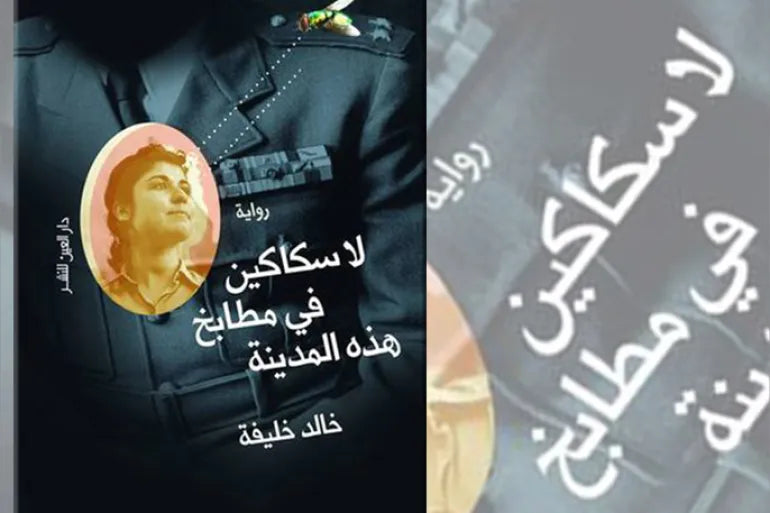
Share

A novel that whispers nothing and screams everything
There are books you read with a cup of tea. And then some books rip the cup from your hand, smash it on the floor, drag you by the collar into a back alley of history, and leave you blinking in the stench of something far too real. No Knives in This City's Kitchens is firmly, unapologetically, the latter.
This was my first foray into the world of Khaled Khalifa—a world where dignity is optional and suffering is guaranteed and institutionalized. I might have asked for hazard pay if I knew what awaited me in these 300-odd pages. Or, at the very least, a stiffer drink.
Khalifa doesn't write novels. He orchestrates breakdowns. This one, set in the sprawling, grief-smeared alleys of Aleppo, is a story within a story within a scream. It is not a narrative so much as it is a vivisection—of a family, of a city, of a nation under the long and withering shadow of the Ba'ath regime. And it is not a gentle, literary autopsy either. We're talking full-blown back-alley surgery with a kitchen knife that, ironically, seems to be missing from every kitchen in Aleppo.
In a line that clings to you like the scent of burnt sugar, the narrator declares death to be "the only just thing in this life." From there, Khalifa invites us to contemplate rat poison, frayed ropes, kitchen blades—anything, really, that offers a way out of this decaying civic body that the Assad regime has turned into one giant, open grave.
In this Aleppo, no one is well. Everyone is a criminal and a casualty. You won't find a single "normal" character unless your definition of normal includes arsonist fathers, mad daughters, repressed mothers, sexually estranged sons, and a heavy dose of spiritual mildew. Even the family dog would've needed therapy if there had been one.
Khalifa crafts a cast of adulterers, traitors, prostitutes, deviants, and lost souls and then—with unnerving precision—connects every thread of dysfunction back to the regime. It's not that he's saying the Ba'ath Party made everyone miserable (which, for those who didn't benefit from it, did). He's saying it hollowed out the soul of a city until misery became its only language.
And what a language it is. There's barely a scrap of dialogue. Instead, the novel unfurls in sweeping internal monologue, which feels like listening in on the thoughts of someone standing at the edge of a cliff, casually listing reasons to jump. It's brutal. It's brilliant. It's the kind of prose that could make a stone flinch.
The city of Aleppo becomes the true protagonist—a breathing, bleeding entity rotting under the weight of decades-long repression. Though the book halts before the outbreak of the Syrian revolution in 2011, you can feel the uprising trembling beneath every page, like a held breath that never gets released. The crimes of Assad, the father, echo through the acts of Assad, the son, in what can only be described as a generational relay of ruin.
This is not a book to be loved. It is a book to be endured. It's exhausting, repulsive, and filled with characters you wouldn't want to meet in a well-lit café, let alone a dark alley. But in its relentless depiction of rot and repression, Khaled Khalifa has given us a masterwork. This novel screams when others whisper and dares to look where most literature politely averts its gaze.
It's an epic in the truest, dirtiest sense of the word. With the magic of Latin American storytelling and the stench of Middle Eastern politics, No Knives in This City's Kitchens isn't just a novel—it's an autopsy report on a nation still learning how to breathe.
Five stars. And a stiff drink.
